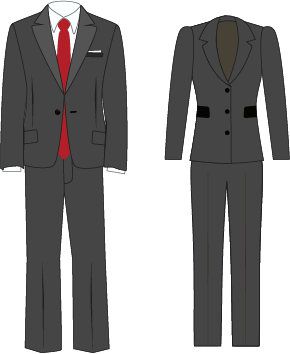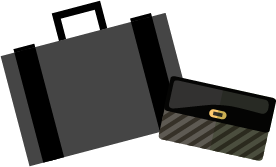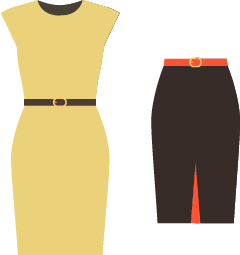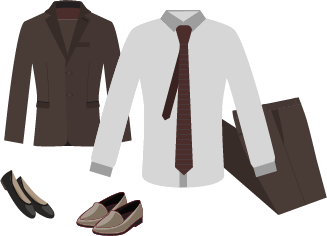What to Wear
Dressing appropriately is crucial for making a good first impression at an interview or employer event. Interview attire indicates to the employer that you value yourself and your work. Use the below guide to dress for your interview. Every interview and every interviewer is different. When in doubt, seek the advice of your career coach.
Business professional
Job interviewing attire

Clothes should be:
- Solid, dark or neutral colors
- Light colors can be worn underneath
- No stripes or bright prints/colors
Shoes should be:
- Closed-toe heel or dress shoes
Matching colors
Suit jacket and pants/skirt should be matching colors
Bring essentials only!
Carry a portfolio, professional bag or simple purse
Personal items and cell phones
Keep cell phones turned off and out of sight with personal items

Business casual
Daily work attire

Colors and styles
- Nice pants/slacks
- Dresses
- No jeans, shorts, sundresses, or athletic wear
Skirts and dresses
Skirts and dresses should be knee length when standing and thighs covered while seated
Jackets and shoes
Wear blazers and cardigans with flats, boots, closed-toe shoes, or comfortable shoes for walking in
Ties
Ties can be optional

General recommendations
It’s all about the first impression
Clothes should be:
- Tailored
- In good condition
- Wrinkle and lint free

Dress shoes
Dress shoes should be neat and clean, no sandals

Belts
Belts should match the color of your shoes and attire
Graphics courtesy of Stetson University